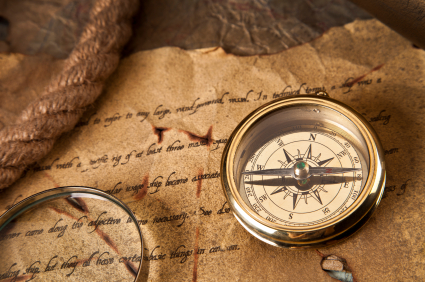
Prayer is a subject that we often talk about, but rarely study. Perhaps this is because many of us have been familiar with the concept of prayer since we were young, and like walking or eating we feel that it should come naturally. In a sense it does – even people who don’t acknowledge a relationship with God have been known to shout out to Him in a moment of despair. But developing a life that is rich in prayer is an entirely different story. Unfortunately, many of us are willing to settle for the momentary pleas of our youth rather than developing the habit of “pray[ing[ without ceasing” as Scripture commands (I Thess. 5:17).
One of the most instructive lessons on prayer for me, is about a time when it was lacking. The Israelites, led by Joshua, had been conquerering many of the nations that surrounded them. Word about their conquests had spread and other nations were fearful of their eventual destruction at the Israelites’ hands. The Gibeonites decided to try to trick the Israelites into making a treaty with them by pretending that they lived far away, even though in reality they lived close. Disguising themselves as people who had made a long journey, the Gibeonites make their case to the Israeliltes, and the Israelites foolishly agree to a pact of peace. As Joshua 9 describes the exchange these haunting words are recorded, “but [the Israelites] did not take counsel from the Lord” (Josh. 9:14b).
It’s easy to understand how the Israelites found themselves in this predicament. They were presented with an opportunity and the wise course of action seemed readily apparent. There wasn’t confusion about the most strategic move, or any noted disagreement about the leaders about the best action to take. From all external appearance, their decision made sense. Except they forgot that appearances don’t always tell the whole story. Instead of relying on the wisdom of a God who knows all and is sovereign over all, they trusted their own instincts. And their instincts, while perhaps sharply honed, were wrong.
Yet we are often tempted to do the same. When we are racked with uncertainty we are quick to bring our requests before God. When a decision seems “easy” or “instinctive” – we quickly proceed based on our own understanding. What we should do instead is learn a lesson from the Israelites’ mistake. We should stop and pray when we recognize our lack of knowledge, yes, but we should also do it when we already think we know the way. God may confirm our initial inclination or He may reveal something of which we were unaware – either way, it would be better to seek His wisdom then to simply rely on our own.
This can be a hard practice to institute. As a general rule, people desire certainty, so when we think we have it, we are reluctant to give it up in order to seek God’s perspective. However, as the Israelites learned, not doing so can have some serious consequences. Conversely, doing so not only provides assurance in the particular situation we face, but deepens our trust and reliance on God for future decisions as well. Additionally, our prayer life will be enriched as we regularly bring ourselves before God to seek His perspective.
Stop and pray. Easy to say, but often difficult to do. As you face circumstances and decisions today, will you?
